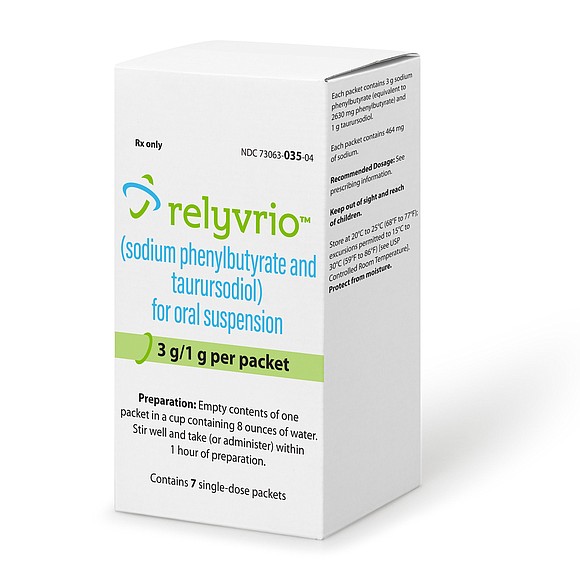ALS drug Relyvrio withdrawn from market; clinical trial fails
Mira Cheng, CNN | 4/4/2024, 11:14 a.m.
Amylyx Pharmaceuticals announced Thursday that it has begun the process of voluntarily withdrawing its ALS drug, Relyvrio, from the market after it failed to prove efficacy in a large clinical trial.
“Relyvrio will no longer be available for new patients as of today. Patients currently on therapy in the US and Canada who, in consultation with their physician, wish to stay on treatment can be transitioned to a free drug program,” Amylyx said in a news release.
Results from a large Phase 3 clinical trial released in early March showed that Relyvrio did not outperform a placebo in improving participants’ ALS functional scale, a measure of their ability to breathe, swallow and speak after 48 weeks. It also did not significantly improve patient-reported quality of life, overall survival and respiratory function.
Amylyx said it would continue to evaluate and share findings from the clinical trial to help inform future ALS research. The company will reduce its workforce by approximately 70% and prioritize funding its ongoing studies of an experimental drug for Wolfram syndrome and supranuclear palsy – both rare neurodegenerative disorders – and another experimental drug for ALS, according to the news release.
“We commend Amylyx for pulling Relyvrio off the market, while still ensuring that people living with ALS can access the drug if they believe it is helping them,” the nonprofit ALS Association said in a statement. “ALS is a fatal and heterogenous disease with few treatment options, and creative solutions are needed.”
ALS, also known as Lou Gehrig’s disease, affects as many as 30,000 people in the United States. It’s a fatal neurodegenerative disease that kills the nerves that make muscles work, affecting the ability to move, speak, swallow and eventually breathe, according to the US Centers for Disease Control and Prevention. The average time from symptom development to death is two to five years.
Relyvrio gained approval from the US Food and Drug Administration in September 2022 based on a small phase 2 trial that showed a modest slowing of disease progression in people who received the drug. The decision was controversial at the time, experts said, because proof the drug’s efficacy was insufficient by typical FDA standards, but lobbying by ALS patient advocacy groups and a promise from the company that it would consider withdrawing the drug if the larger clinical trial failed led to its approval.
“Safe and potentially effective treatments can be made accessible rapidly until further research can confirm their efficacy,” the ALS Association said in a statement. “There are more than 40 more potential treatments in the pipeline and we are focused on trying to advance the safe and effective ones as quickly as possible.”




